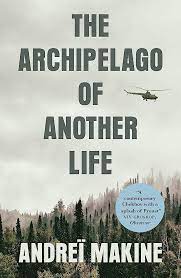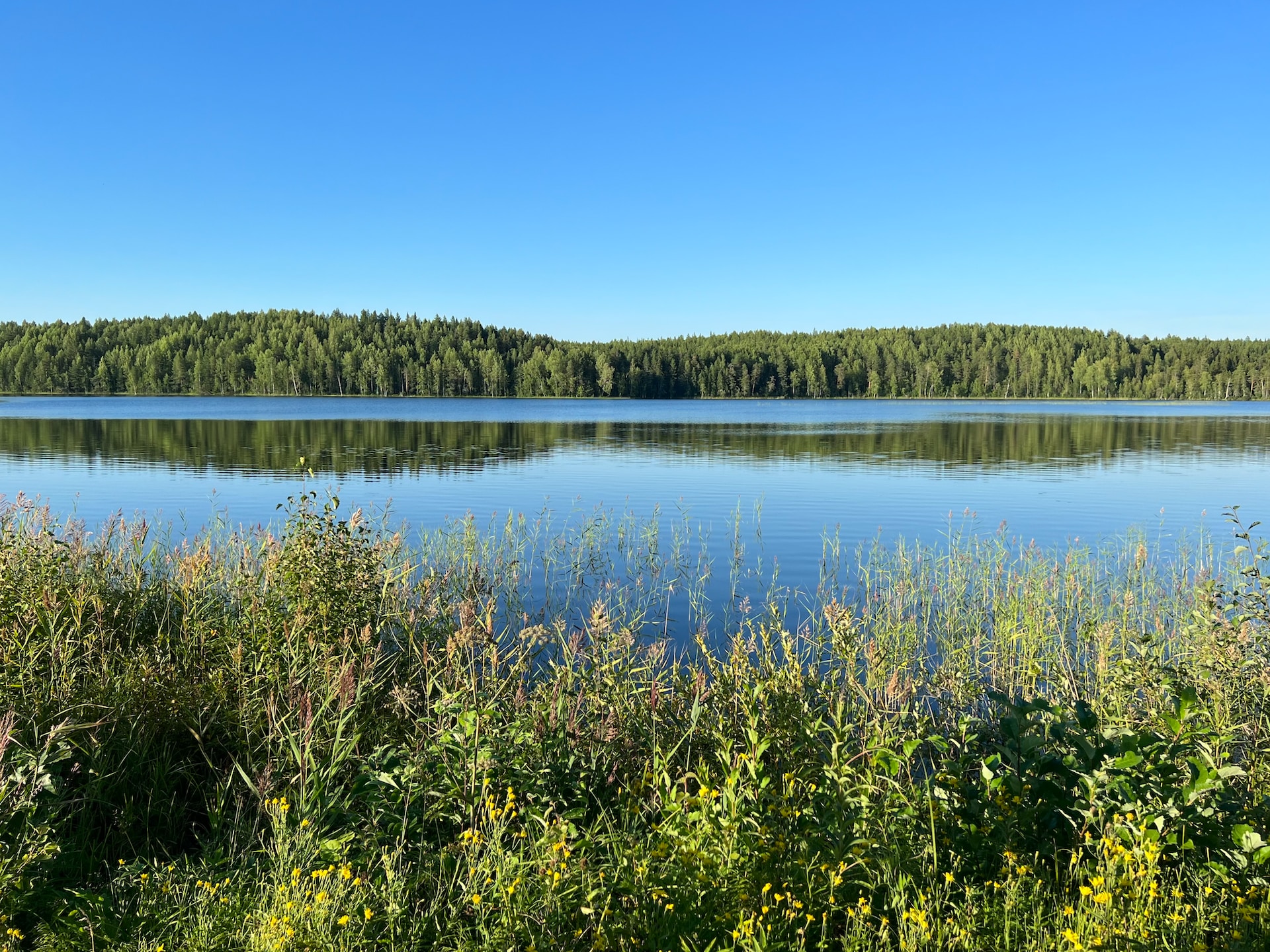by Nicole Yurcaba

For Siberian-born French novelist Andrei Makine, Russia’s full-scale war in Ukraine has been “a matter of the unthinkable.” Once accused of being a being Putin-sympathizer because of his criticism of Russian president Yeltsin, Andrei Makine is no stranger to political misconception and controversy. Perhaps that goes along with the territory of being a Siberian-born novelist who was granted political asylum in France in 1987, and political misconception and the terrors of the Soviet government are well-explored topics in Makine’s novels. Currently, Makine condemns Russia’s invasion of Ukraine, and his 2021 novel The Archipelago of Another LIfe, translated by Geoffrey Strachan, is a historical reminder about what happens to those who oppose a dictator’s brutal authority. However, The Archipelago of Another Life is not another novel criticizing Stalinist era policies and humanity; it is a Transcendental novel, in which Nature and the solitude it offers become the ultimate heroes.
Makine’s novel follows the story of Pavel Gartsev, a reservist training on the Soviet Union’s far eastern borders for a war that could end all humanity. An orphan and a veteran of World War II, Pavel becomes an instant scapegoat for the careerist apparatchiks thriving in the Red Army. When Pavel and others embark on a search mission to recapture an escaped prisoner, Pavel finds himself amidst a small group of secretive socio-political critics, merciless sadists, and unlikely heroes. As the group pursues the prisoner farther and farther into the taiga, the unforgiving taiga and its challenges reveal each character’s true nature. More so, the escaped prisoner proves no easy prey, and when a shattering discovery divides the group even more, Gartsev finds himself facing choices which go against the Stalinist system and pitch individual survival against the collective one.
Essentially, The Archipelago of Another Life is a Transcendentalist manifesto disguised as a fictional socio-political criticism. It is filled with plenty of futilistic, philosophical anecdotes like A wounded man is always a wounded man” and “Pain serves to reveal the man.” These anecdotes are sprinkled cautiously through the action-filled plot and imagistic, natural imagery. They serve as momentary meditations which abruptly stop readers mid-action and reveal that Pavel is, quite frankly, the novel’s most intellectual character. Nature becomes a place of freedom, where the taiga’s ruggedness not only grinds the men to their physical, mental, and emotional breaking points, and amidst the harsh grinding, Pavel and some of the other characters realize the frailties of the governmental system they cannot criticize. Other characters are so entrenched in the system that their return to it is imperative, and they will go to any lengths–including fabricating lies which ensure characters like Pavel receive the harshest sentences available–to ensure their survival within the system. Thus, the novel develops a Lord of the Flies motif, and chaos becomes the altar at which characters such as Ratinsky worship.
The Archipelago of Another Life also depicts another lesser-known part of the Soviet Union’s history during Stalin’s reign of terror–the displacement of Russia’s indigenous peoples. A single character–Elkan, the escaped prisoner–embodies the indigenous peoples’ experience under Stalin. A member of the Nigidale, Elkan and her people were displaced from their lands and moved into camps when the Red Army moved into the area in order to conduct training exercises. Historically, Soviet leaders held a long legacy of imprisoning indigenous leaders and forcing them into labor camps where the majority of them perished. Soviet ideologies and practices forcibly replaced indigenous ones, and as the Mises Institute reports, the Soviets treated native peoples as “resources to be shifted around and disposed of rather than as free peoples.” However, anyone who thinks that the situation has changed in modern Russia is severely misinformed. According to The Wilson Center, “The government wants to keep indigenous communities under control and pursue paternalistic policies toward them.” Nonetheless, a character like Elkan provides hope for both readers and Russia’s indigenous peoples: when a dictator dies, a shockwave occurs, and those once imprisoned by the dictator’s rules and policies often discover freedom.
While many around the world would celebrate the demise of Vladimir Putin, Makine’s novel makes one reality frightfully clear–the death of one dictator does not mean that others will not take their place, nor will their policies be magically, instantly erased. Both Gartsev and Elkan make a choice to separate themselves from a society and political structure founded on brutality, lies, and exploitation. As one character in the novel observes, “Their exile was less about fear of being arrested and thrown into a camp than it was about a refusal to take part in any such games.” Gartsev and Elkan’s escape into the taiga, where they live minimalistically and completely attuned to nature, is the ultimate choice, an unimaginable sacrifice, and their exile is a “reckless defiance with which they challenged fate.” The novel portrays Soviet society as a hostile train “going of the rails, in a flight that was suicidal.” Therefore, Gartsev and Elkan stand as an example that might serve modern Russia well, given that modern Russians whose upbringings, according to the Carnegie Endowment for International Peace, are rooted in “fear, generational trauma, and extreme socioeconomic dependency on the state” seem very unwilling to rise up against their current government.
The Archipelago of Another Life holds many lessons for readers during a time when Europe and the globe are torn between protecting an ally under attack and not angering a bullying toddler who makes benign threats in hopes of spreading fear and panic. At some point, Ukraine’s global allies–as well as the Russian people–will have to make a choice. What will it be?
Nicole Yurcaba (Ukrainian: Нікола Юрцаба–Nikola Yurtsaba) is a Ukrainian (Hutsul/Lemko) American poet and essayist. Her poems and essays have appeared in The Atlanta Review, The Lindenwood Review, Whiskey Island, Raven Chronicles, West Trade Review, Appalachian Heritage, North of Oxford, and many other online and print journals. Nicole teaches poetry workshops for Southern New Hampshire University and is a guest book reviewer for Sage Cigarettes, Tupelo Quarterly, Colorado Review, and The Southern Review of Books.



Add your first comment to this post